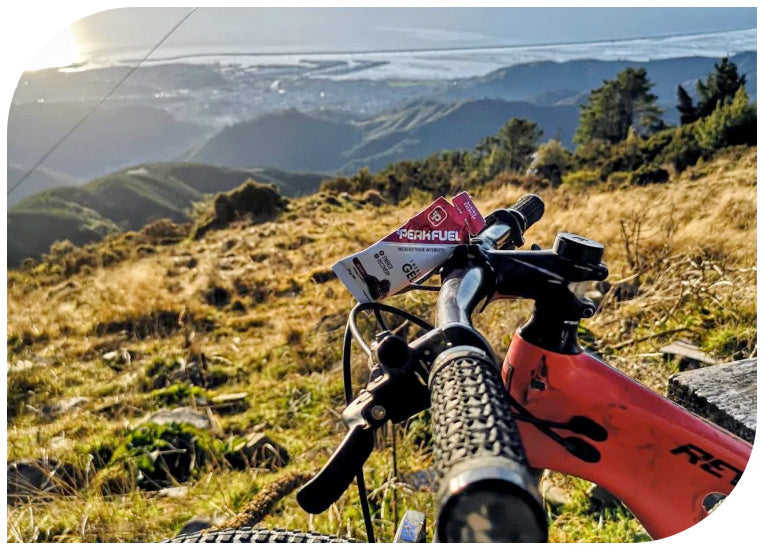Cycling can literally become a juggling act when it comes to consuming nutrition while on the go! Here are some basic but game-changing tips to get you thinking about the best way to fuel your ride.
- Make it easy to fuel! Taking your hand(s) off the handlebars to reach nutrition can be a dangerous task and A. is the cause of many crashes B. the reason cyclists often don't fuel adequately. Open wrappers and cut food into bite-sized pieces for easy access while on the go. Extra points if you can assign (and remember) what foods go in each pocket.
- Put a "bento box" on your stem. If you lack the confidence to get your nutrition from pockets (especially in a bunch or race scenario) then a "bento box" is a great solution quickly accessing your nutrition. These are also helpful on longer rides or triathlons where you need to take larger quantities of nutrition.
- Tape is really handy for securing extra gels, salt capsules and other goodies to handlebars or stems. Don't just save this trick for racing but be sure to use on your long rides. And of course, being face to face with your nutrition along the way will help remind you to fuel.
- Hydrate. Depending on weather and a few other conditions you can require upwards of 750ml PeakFuel Isotonic Sports Drink per hour but to keep it simple aim for one bottle per hour. You need to pre-plan around this which may include; Adding an extra bottle cage to your bike, taking a hydro pack, meeting a supporter halfway or if it's a race then check what aid stations are available.
- Plan your nutrition around the terrain. Its harder to take nutrition on board when you're under physical stress so make the most of easier/flat stretches to fuel as much as possible (always a good time to eat your real food options). If you know there is a section of high intensity riding ahead, then allow as much time as possible before for your fuel to digest.
- Prevent cramp before it arrives. peddling and cramp do not go hand in hand (as some of you will know well). To minimise the risk of it occurring make sure you have electrolytes in your hydration, look at taking Electrolyte capsules and of course lock in plenty of training to condition your muscles to function during long durations or high intensities.
- Practice your nutrition plan. Use your long training rides to replicate what you're planning to do on race day and to see what works for you and what doesn't. Don't be afraid to try new nutrition strategies in training, this is where the biggest lessons should be learned.
